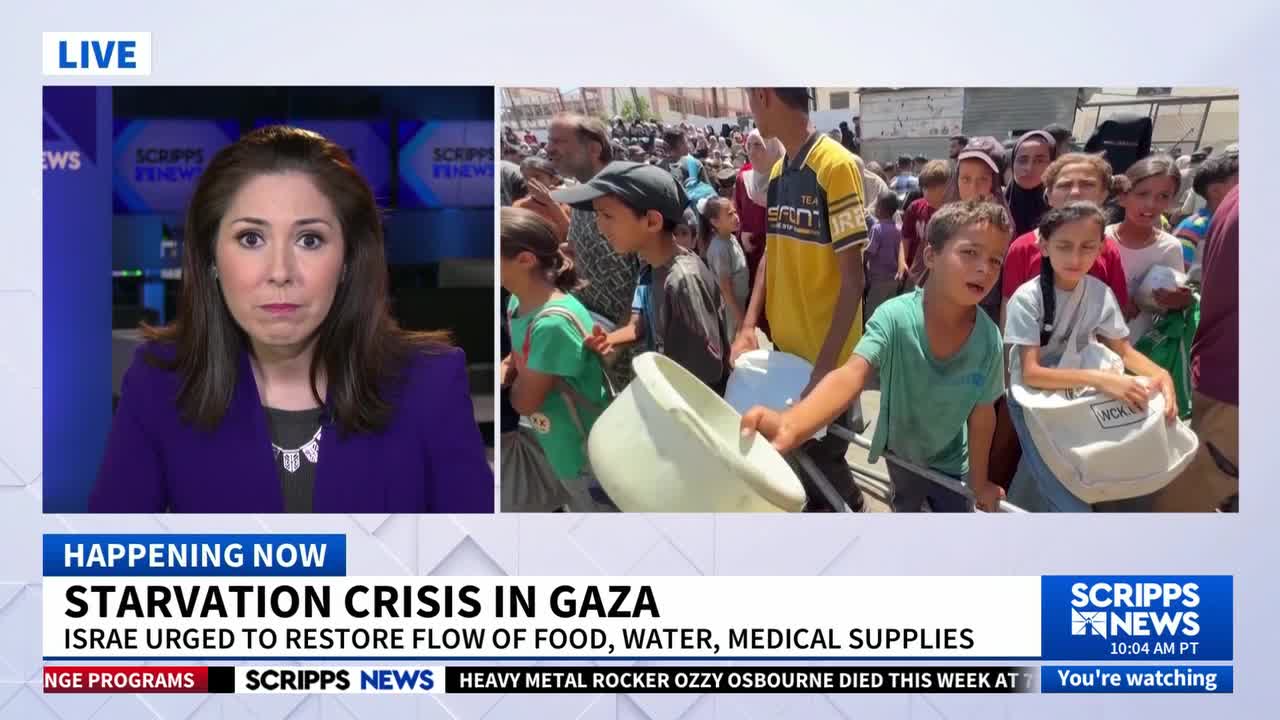Gaza is facing a severe food crisis, with more than 100 humanitarian aid agencies warning that the population is on the brink of starvation.
In a statement released on Wednesday, organizations including Save the Children and Doctors Without Borders revealed that even their own colleagues in Gaza are struggling to access adequate food supplies.
The challenges of delivering food to Gaza have been exacerbated by an Israeli blockade imposed earlier this year, which was slightly loosened in May. That change facilitated the entry of approximately 4,500 aid trucks since then, a fraction compared to the 600 trucks that were able to enter daily before the blockade was enacted.
WATCH | Additional reporting on the starvation crisis in Gaza
Currently, the Gaza Humanitarian Foundation, backed by Israel and the United States, is the only aid agency significantly distributing food. However, their distribution centers have become sites of violence.
According to the United Nations, more than 1,000 individuals have lost their lives at these sites since May while attempting to obtain food.
Reports indicate that many fatalities occurred during stampedes, while the majority were caused by gunfire from members of the Israel Defense Forces. The IDF claims they were acting in self-defense amid the chaos.
IN CASE YOU MISSED IT | 73 people killed waiting for humanitarian aid across Gaza, Palestinian Health Ministry says
In their letter, over 100 aid agencies described the food situation as "untenable" and have called for an end to the blockade to enable broader food distribution efforts.
Ahmed Bayram, media adviser for the Norwegian Refugee Council, emphasized the dire circumstances faced by those in Gaza.
"In terms of the food situation, I hear from my colleagues who are themselves starving, that they have now they have probably one meal a day and that should be before bedtime so that their children don't go to bed with empty stomachs," Bayram said. "I heard yesterday also from a colleague about a pregnant woman who was carrying a flour, a bag of flour when she was shot dead. So these kind of unfortunately, these, these kind of incidents, these kind of attacks, are being normalized and that's the danger."
Despite the escalating crisis, the U.S. State Department maintains its support for the Gaza Humanitarian Foundation, asserting that it prevents food aid from reaching Hamas, despite its limited distribution sites in the narrow Gaza Strip. State Department Spokesperson Tammy Bruce highlighted the ongoing challenges of operating in a war zone.
RELATED STORY | New details emerge on Gaza ceasefire proposal as Netanyahu heads to the White House
"It's been always the intention, obviously, to have as many sites as possible," she said on Tuesday. "And again, it's been the difficulty of being in a war zone, and what you can do and what you can arrange. The fact that we've had three sites up — and I think now it is nearly 85 million meals to date at the distribution centers that do exist — clearly it's not just a dynamic of wanting more distribution centers in a war zone. Our goal is to have not a war zone."
However, many aid organizations argue that the meals provided by the Gaza Humanitarian Foundation are insufficient for the region's two million residents, with individuals facing imminent starvation. The World Food Program has reported "astonishing levels of desperation," with approximately 100,000 women and children in Gaza suffering from severe acute malnutrition.
Although conditions remain grim, a formal famine has yet to be declared in Gaza. This determination is made by a group that consists of various stakeholders including UN agencies and other aid groups. Their challenge is compounded by Israel's restricted access to the Gaza Strip, which hampers data collection necessary to assess the famine situation.
This story was initially reported by a journalist and has been converted to this platform with the assistance of AI. Our editorial team verifies all reporting on all platforms for fairness and accuracy.




